Wangari Maathai Quotes & Sayings
29 most famous Wangari Maathai quotes and sayings. These are the first 10 quotes we have for her. She was a Kenyan activist who passed away on 25 September, 2011.
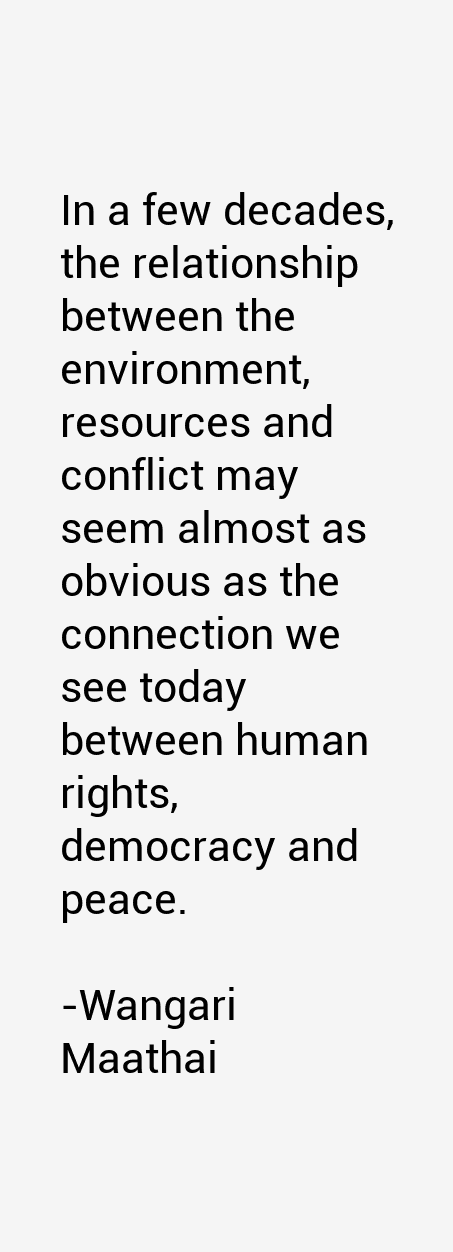
“In a few decades, the relationship between the environment, resources and conflict may seem almost as obvious as the connection we see today between human rights, democracy and peace.”
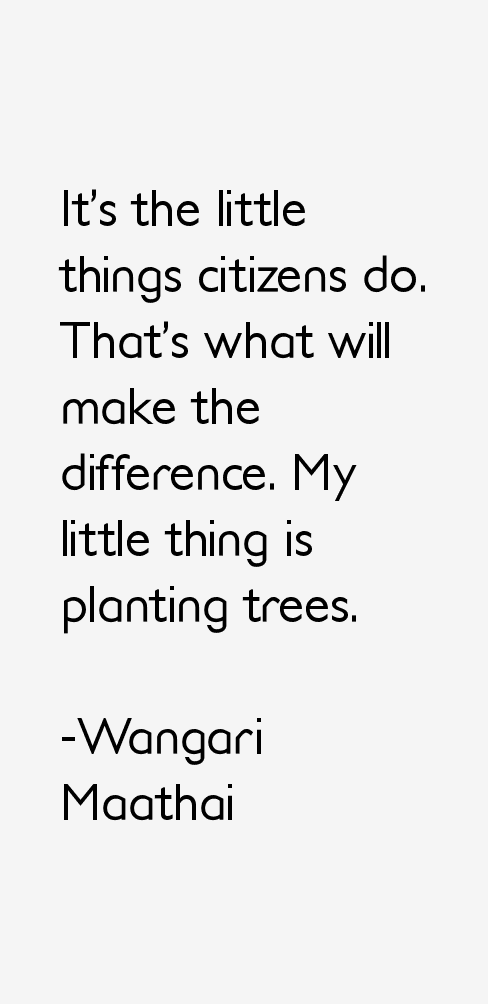
“It's the little things citizens do. That's what will make the difference. My little thing is planting trees.”
“When resources are degraded, we start competing for them, whether it is at the local level in Kenya, where we had tribal clashes over land and water, or at the global level, where we are fighting over water, oil, and minerals. So one way to promote peace is to promote sustainable management and equitable distribution of resources.”
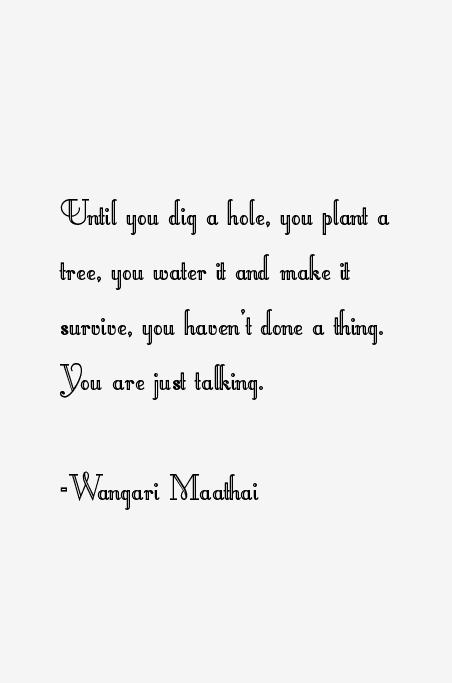
“Until you dig a hole, you plant a tree, you water it and make it survive, you haven't done a thing. You are just talking.”
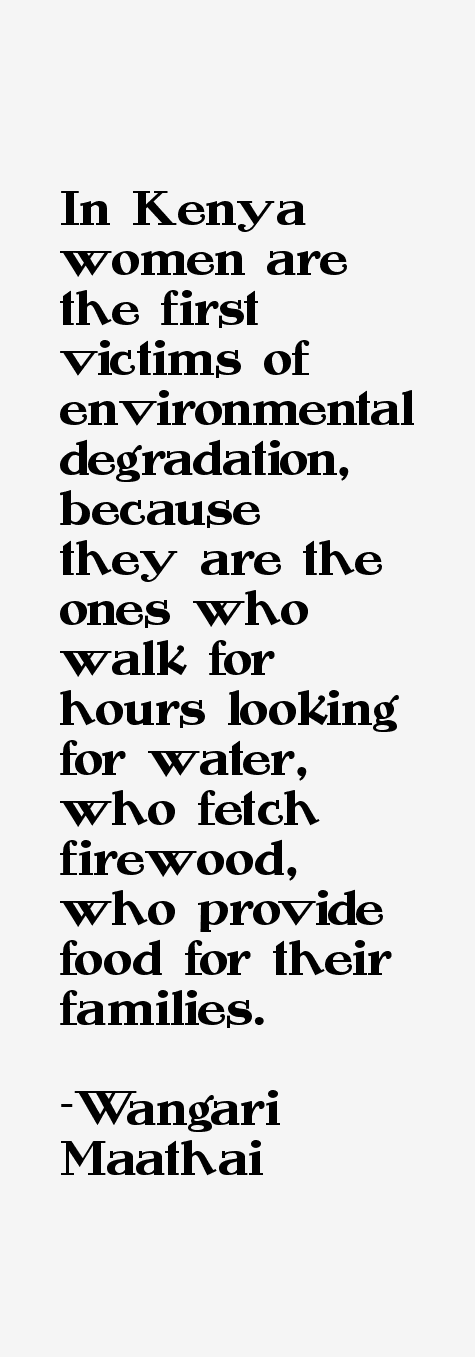
“In Kenya women are the first victims of environmental degradation, because they are the ones who walk for hours looking for water, who fetch firewood, who provide food for their families.”
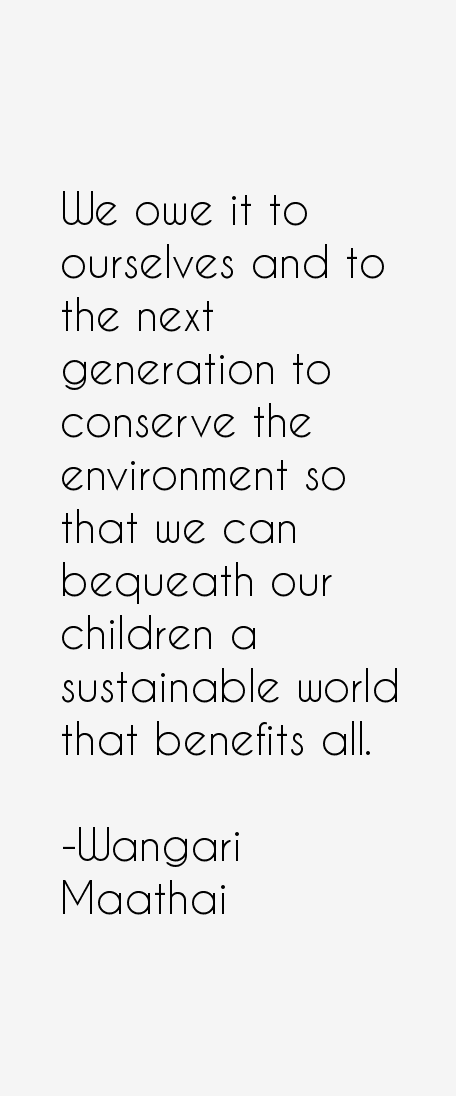
“We owe it to ourselves and to the next generation to conserve the environment so that we can bequeath our children a sustainable world that benefits all.”
“But when you have bad governance, of course, these resources are destroyed: The forests are deforested, there is illegal logging, there is soil erosion. I got pulled deeper and deeper and saw how these issues become linked to governance, to corruption, to dictatorship.”
“That's the way I do things when I want to celebrate, I always plant a tree. And so I got an indigenous tree, called Nandi flame, it has this beautiful red flowers. When it is in flower it is like it is in flame.”
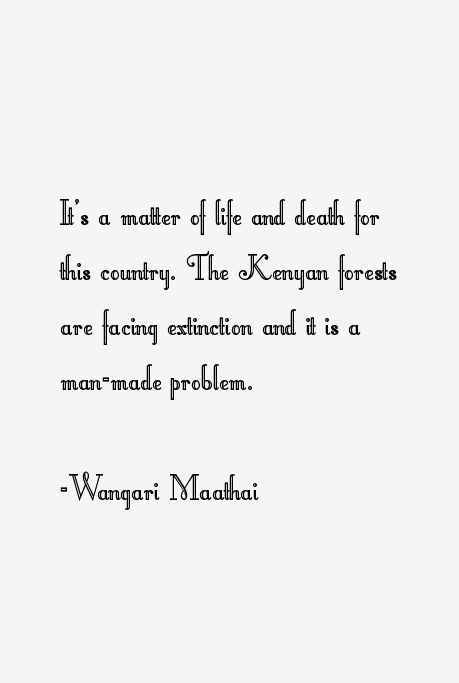
“It's a matter of life and death for this country. The Kenyan forests are facing extinction and it is a man-made problem.”
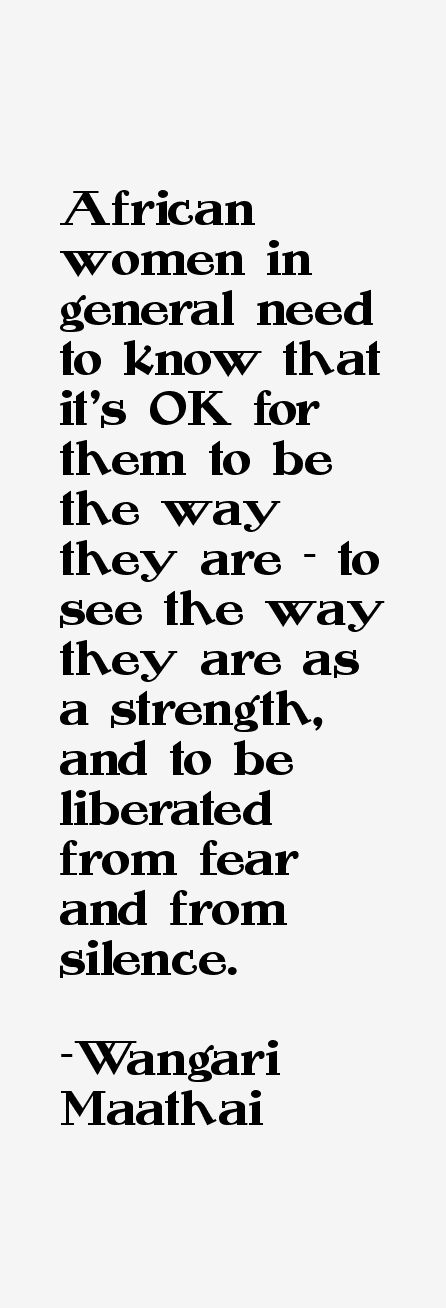
“African women in general need to know that it's OK for them to be the way they are - to see the way they are as a strength, and to be liberated from fear and from silence.”
Wangari Maathai Quotes Rating
Rating: 1/5 - 1 vote
Leave A Comment
























